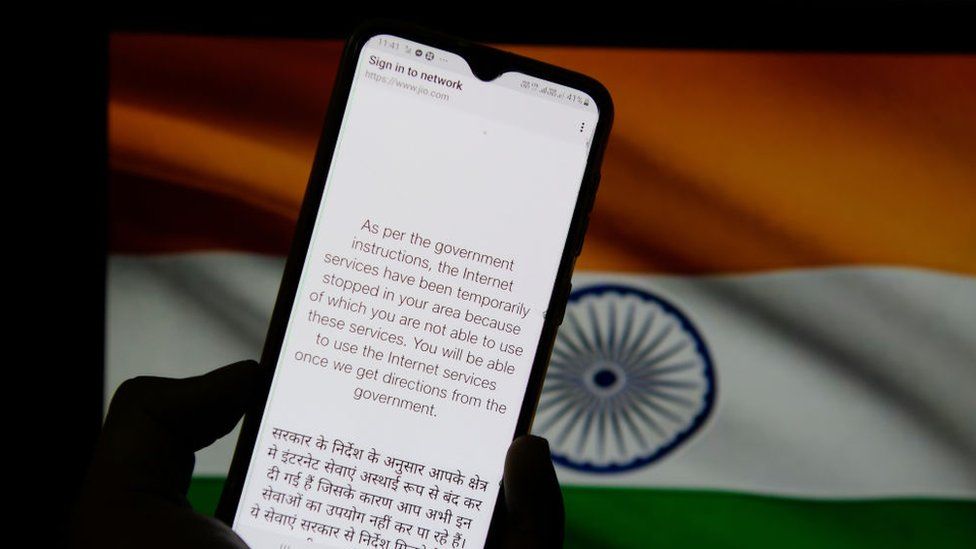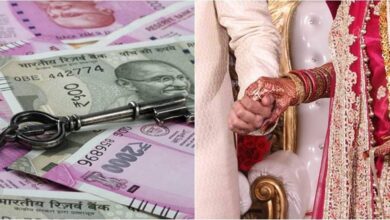The Cost Of Silence: India’s Internet Shutdowns And The Battle For Digital Freedom
India, the world’s largest democracy, was the second-biggest enforcer of internet shutdowns in 2024. With increasing digital blackouts for security and political reasons, concerns over freedom, economy, and human rights intensify.

India was the second-largest internet blocker in the world in 2024, a new digital rights organization reported recently. The ranking is a repeat of the country’s continued struggle with digital freedom and access to information. The government’s takeover of the internet, its impact on fundamental rights, and the necessity to be praising security matters have all been brought into question in the study.
Internet Shutdowns: A Growing Concern
Shutdowns have become an international phenomenon as governments have increasingly used them to quell dissidence, muffle disinformation, and avoid communal strife. They accomplish all this at the expense of shutdowns, inducing dislocations to commerce and discouraging economic growth. Access Now’s report informs us how states have been applying this measure, and India ranks second because of the frequency and duration of shutdowns imposed by the authorities.
The Shutdowns Report: Key Findings
Access Now is a non-governmental organization that tracks internet shutdowns globally and releases yearly reports of instances in which the government or authorities have deliberately shut down internet connectivity. Their latest 2024 report reveals a worrying trend of digital restrictions across several nations, and India is among the most brutal hit.
According to the report:
- India recorded many internet shutdowns, making it the second-highest national shutdown.
- The reasons cited for these shutdowns include curbing misinformation, communal violence, and maintaining law and order.
- Most of these shutdowns occurred in regions like Jammu and Kashmir, Rajasthan, West Bengal, and Uttar Pradesh.
- India’s placement on the list comes despite widespread criticism from human rights organizations and digital rights activists.

Why Does India Have Frequent Internet Shutdowns?
Indian governments have regularly shut down the internet as steps were taken to public order. Among the principal reasons for the shutdown are:
- Prevention of Communal Violence: Shutdowns are imposed in response to tensions, such as shutdowns of immunity to prevent inflammatory content from spreading on social media. The authorities contend that limiting access to the internet can stop misinformation from fueling violence.
- National Security and Anti-Terrorism Measures:
- Areas such as Jammu and Kashmir have witnessed prolonged shutdowns, with the government citing security shutdowns and the need to prevent terrorist activities.
- Internet access is often restricted due to militant attacks or large-scale protests.
- Control Over Protests and Political Dissent:
- Shutdowns have been used quite often to quell shutdowns and political protests, particularly during mass protests against government policies.
- Instances like the farmers’ and anti-CAA protests saw internet blackouts to disrupt mobilization efforts.
- Elections and Political Sensitivities:
- Some shutdowns occur during election periods due to the shutdown of false information and rumours that could influence voting behaviour.
- Sometimes, internet restrictions are seen as a means to control political narratives.
Economic and Social Impact of Internet Shutdowns in India
Even though the government Shutdowns these measures in the name of law and order, internet shutdowns are very costly both economically and shutdowns. Some of the most significant among them are:
1. Economic Losses
- The Indian economy suffers substantial financial losses due to internet shutdowns, particularly in regions heavily dependent on digital transactions, e-commerce, and IT services.
- India is estimated to lose billions of dollars annually due to normal internet restrictions, which disrupt businesses, freelancers, and daily wage workers operating on digital payment.
2. Disruption to Education and Healthcare
- With online learning bases gaining popularity, students are negatively impacted by the internet shutdowns and suffer from lapses in knowledge and opportunity.
- Provision of healthcare has been compromised since telemedicine and electronic records are not available, and treatments and consultations that are essential have been postponed.

3. Human Rights and Freedom of Expression
- Internet shutdowns limit access to critical information and freedom of speech, which is contrary to basic rights.
- Journalists, activists, and ordinary citizens find communicating, reporting news, and reporting significant events difficult.
4. Psychological and Social Effects
- Extended internet shutdowns lead to isolation, frustration, and shutdown stress, especially among young people who rely on digital communication.
- Communities in affected regions feel cut off from the rest of the country and the world, adding to their grievances.
How India Compares to Other Nations
Even though India is the world’s largest democracy, it ranked second after other yet-to-be-revealed nations in the excess shutdowns report. Myanmar, Iran, and Russia are also leading the pack, where internet shutdowns were employed to muzzle the opposition and control narratives.
But India’s situation is even more remarkable because it is a democracy. Shutdowns can be the daily order of things in other nations with autocratic regimes, but India’s shutdowns occasionally contradict its democratic ethos, freedom of speech, and cyber rights.
Calls for Policy Reform
The increasing use of internet shutdowns in India has caused alarm among civil rights organizations, specialists, and foreign observers. Several organizations have called for policy reforms to regulate the indiscriminate use of shutdowns. Some of the most significant calls are:
- Clear Guidelines: In favour of shutdowns, but only in total shutdowns, and periodically evaluated to see whether they are necessary.
- Judicial Oversight: The judiciary needs to actively review shutdown orders to prevent such orders from becoming tools of state oppression.
- Transparency in Government Actions: Clear justifications for shutdowns and the relaxation of limitations should be provided during shutdowns when required.
- Alternative Solutions: Instead of instituting blanket shutdowns, specialists suggest applying precision tools like content blocking, law enforcement shutdowns against bullies, and increasing internet literacy to combat disinformation.
Conclusion
Since India boasts the second-highest internet shutdown rate in the world, there are strong concerns regarding digital freedom and rights and their influence on democracy and economic development. The government provides public order and security as reasons to limit such shutdowns, but the consequences require further regulation and shutdown methods.
As the growing relevance of internet access to social and economic development continues, Indian governments must balance security requirements with the human right of freedom online. By making open rules a reality and placing shutdowns on priority, India will ensure that it no longer leads the world in the number of internet shutdowns justified.




